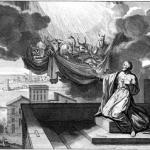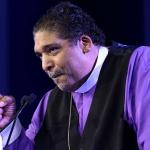Can you be an atheist and a Christian?
I probably spend at least as much time discussing theology with people who claim atheism or agnosticism as I do with other Christians. I tend to prefer it this way.
For one, it challenges me to really think about and articulate what I believe and why. For another, I’d much rather have some lively dialogue with people who think differently than I do than to sit around and agree with everyone.
After one of these kinds of chats recently, I started wondering if someone actually could be a Christian, while also not believing in a divine being. It began as a fairly abstract intellectual exercise, but the answer I came up with actually surprised me.
Depending on your personal Christology, I am pretty confident that you can be both a Christian and an atheist.
I should explain here what I mean by Christology. There’s a sort of Christological spectrum that helps define how each person perceives Jesus. Those who focus more on the divinity of Jesus, his miraculous works the significance of the crucifixion and resurrection within their theology of salvation would have what’s called a high Christology. Those who emphasize Jesus’ humanity, his works of compassion, his teaching and his love for all of humanity would have a lower Christology.
Though I’m not a big fan of the connotations that “high” and “low” attach to one’s beliefs, I didn’t make up the terms. As someone who has a pretty low Christology, it feels a little bit demeaning to be considered by others to have a faith system that lingers at the bottom of the God Chart.
But that’s not really the point. If you consider that the lower Christology focuses not so much on divinity and more on humanity, it begins to make sense how someone could adhere to the moral teachings of Jesus, and even try to pattern their lives after how he taught and lived, without actually having to believe in God.
Sure, there’s the challenge of what to do about the whole praying thing, but I’ve met plenty of atheists who still meditate without any intention of communing with God. But I’ve met plenty of people who don’t consider themselves to be Christians, but who I think are very Christ-like in the way they live their lives.
So are they Christians? It probably depends on who you ask.
One thing I’ve noticed about those with a higher Christology is that they tend to limit the definition of the word “Christian” to the boundaries of their own understanding. They’ll back up their belief with Biblical scripture, but in the end, the understanding that you must accept Jesus as your personal lord and savior is the only way to be a true Christian.
Through the research I did for a previous book on the spirituality of young adults, I found that younger people are increasingly comfortable with recognizing Christians as anyone who conducts themselves in a Christ-like way. Though high-Christology believers will likely decry this as an erosion of basic religious principles, I think it actually offers an opportunity to open up the best of Jesus’ example and teaching to a lot of people who have felt shut out or judged by Christians.
Even if we maintain a high Christology, do we really need everyone to agree with us before we even have dialogue? Is it possible that there’s a both/and reality that can counter our tendency to think in either/or terms? Can I arrive at my own truth through reflection upon the life and teachings of Jesus, possibly among others, without recognizing him as divine?
Some will feel the need to assert absolute authority in answering this question, and that’s all right. Personally, I think I could spend the rest of my life trying to understand the essence of what I think it means to be a Christian, and still only have a dimly lit view of the whole picture. Other people, atheists included, help me understand a little bit more about my own spiritual reality every day.
That personal growth is way more important to me than knowing who’s right and who’s wrong.















